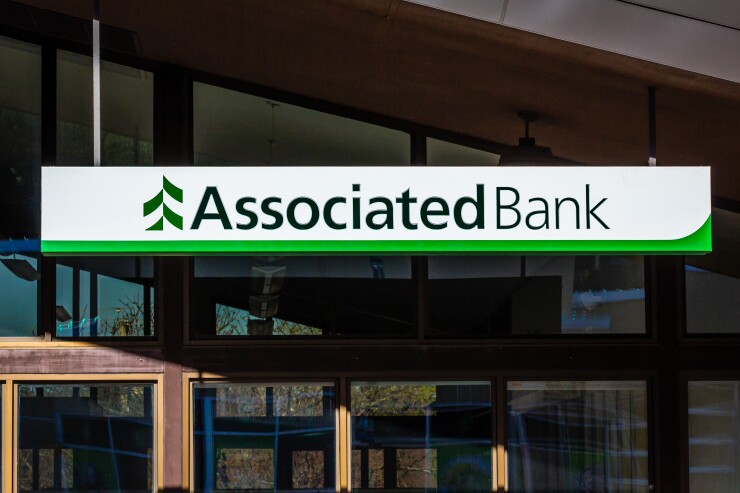Associated Banc-Corp in Green Bay, Wisconsin, is the latest bank to eliminate certain overdraft-related fees, and to cut back on how frequently customers can incur the charges.
The new policies, which are scheduled to be implemented early next quarter, are expected to reduce the bank’s fee income by a modest amount. Company executives projected a quarterly decline of about $1.5 million, or about 2% of the nearly $74.5 million in noninterest income that the bank reported in the first quarter.
At the same time, the changes will “significantly reduce the financial burden of overdrafts to our customers,” Associated CEO Andy Harmening told analysts Thursday.

Associated said it will scrap a fee that its customers pay when they transfer money between accounts to remedy an overdraft. And it will eliminate a $7 daily fee charged to customers whose accounts remain overdrawn for over five days.
The $35 billion-asset parent company of Associated Bank is also reducing the number of times each day that customers can incur a $36 overdraft fee, lowering the limit from four to two. And it is eliminating nonsufficient fund fees that customers incur when the bank rejects a purchase due to a lack of available funds.
Associated’s decision to curb overdraft fees follows
Citigroup, Ally Financial and Capital One Financial have each said they are ditching overdraft fees entirely, while Bank of America slashed its fee from $35 to $10.
Smaller banks, which are
On Thursday, an analyst asked Harmening whether Associated expects to gain customers from smaller banks that have not made changes to their overdraft policies. He responded that it is “hard to predict what their actions are going to be in the future.”
“My answer probably can't be relative to others because that's a fluid situation,” he said during the company’s earnings call. “But I do expect a positive response from our own customer base.”
As they have at many other banks, the overdraft-related fees that Associated collects have fallen in recent years. In 2020, the company reported $18.6 million in overdraft-related revenues, down 24% from the previous year, according to regulatory data.
In an interview last year, Harmening
“It's a conglomeration of the pandemic, the usage of mobile, the underlying need for liquidity all kind of coming together at the same time,” Harmening said at the time.




